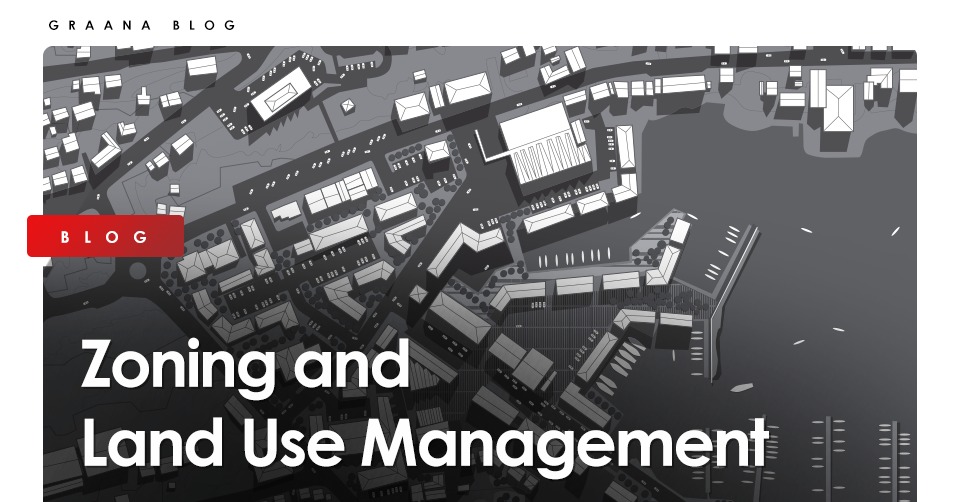
Zoning and Land Use Management are the crucial tenets of urban development. The potential of cities can be harnessed to the optimum if the land management and zoning regulations are given special attention. The influx of people in the cities owing to the migration from urban areas is constraining the existing resources of the cities; therefore, the civic authorities and the policymakers face problems in developing a comprehensive framework. Its implementation also becomes a challenge.
Graana.com explains the importance of ‘Zoning and Land Use Management in the urban centres. The lack of focus on the aspect of urban management is creating unprecedented problems in the cities. The most issues encountered include congestion, growth of slums, and issues of transportation.
Zoning refers to the concept of regulating land use in a particular area. One of the core objectives of any civic authority in a city is to implement zoning regulations. Every civic authority, after thorough consultations, works on its zoning regulations, intensifies its land use, and creates functional real estate markets. Zoning also involves dividing an area into various segments so that multiple aspects of the city can be regulated while a comprehensive city layout can evolve.
The concept of zoning can be elaborated from the fact that the Capital Development Authority (CDA) has divided Islamabad into five different zones. The Islamabad Capital Territory (Zoning) Regulation, 1992, specifies the land usage in Islamabad, making it easier to define the city’s development trajectory.
Similarly, New York City (NYC) is also divided into three zones to manage the city’s resources appropriately. The zoning of NYC is based on residential, commercial, and manufacturing. These areas are further divided into more zones depending on various variables.
Some of the standard classifications of the zonings include commercial, residential, hospitality, industrial, and agricultural zones.
Real estate developers are particularly interested in developing those sites that have pre-determined rules of land use. Since the domain of real estate is restricted to the housing sector, other hospitality, agriculture, and industrial industry players look for the zoned lands. As mentioned earlier, zoning defines the usage of the ground, and it makes it easier for the investors to take out maximum benefits. Similarly, the prices of land are directly associated with land usage in the city. A property that has been built as per the zoning regulations is likely to give more returns on the investment.
It will not be wrong to say that zoning and land use management is the forerunner to comprehensive town planning. From providing spaces to industries to catering to the housing demands of the residents, cities have to cater to the needs of various stakeholders. Against this backdrop, a city’s zoning should correspond to the town planning for better town management. Owing to the increasing population and ballooning demand for housing, spaces in the cities are shrinking. In order to tackle the unprecedented situations in the future, there should be a harmony between zoning regulations and town planning.
People residing in urban cities often hear this stanza ‘the cities need to be more interactive’. This statement calls to attention that towns must cater to the people’s demands, and there should be a clear distinction between the various aspects governing city life. For example, the industries should be developed far from the residential spaces, and similarly, residential areas should not encroach on the agricultural land. In order to avoid unnecessary hotchpotch and make cities more interactive, zoning and land use management are very necessary.
The zoning of land gives special attention to the recreational spaces in the cities. Recreational spaces are an essential aspect of urban centres, an essential tool for utilising leisure time. Similarly, people prefer those spaces to live in which have to provide dedicated spaces for recreational activities. The primary objective of zonings and land use management is that dedicated spaces are given to every aspect of life.
ISLAMABAD: The federal government is set to inaugurate the Islamabad Information Technology Park on August…
Lahore, April 23, 2025 – The city of Lahore has successfully completed the construction of…
ISLAMABAD, Pakistan – April 23, 2025 – Chaaye Khana, Pakistan's popular cafe renowned for its…
ISLAMABAD: Prime Minister Shehbaz Sharif laid the foundation stone for the Murree Road underpass on…
DUBAI: Pakistani real estate developers and representatives showcased a range of commercial and residential investment…
ISLAMABAD: Capital Development Authority (CDA) is currently undertaking a major Rs652 million project to upgrade…